Comparing Chemical vs. Mineral Sunscreens
Types of Sunscreens: Mineral vs. Chemical
When choosing a sunscreen, understanding the differences between mineral (or physical) and chemical sunscreens can help you find the right fit for your skin type and lifestyle. Here’s a closer look:
Mineral Sunscreens
Mineral sunscreens use active ingredients like zinc oxide and titanium dioxide to protect your skin. These ingredients sit on the skin’s surface, creating a physical barrier that reflects and scatters harmful UV rays.
- Texture and Application: They tend to have a thicker texture and may appear opaque or leave a white cast upon application, making them less appealing for some people with darker skin tones.
- Instant Protection: The good news? They start working immediately after you apply them—no waiting around.
Mineral sunscreens are often the go-to choice for those with sensitive skin because they are less likely to cause irritation and provide broad-spectrum protection against both UVA and UVB rays.
Chemical Sunscreens
Chemical sunscreens, on the other hand, contain active ingredients like oxybenzone, avobenzone, and octinoxate. These ingredients absorb UV rays, convert them into heat, and then release that heat from your skin.
- Lightweight and Invisible: One of the biggest advantages of chemical sunscreens is their lightweight texture and transparency upon application—no chalky residue here!
- Wait Time: Unlike mineral sunscreens, chemical options need about 20 minutes to become effective, so you’ll need to plan ahead.
Chemical sunscreens are ideal for those who prefer a lighter feel or need something that blends seamlessly into the skin. However, some formulations can cause irritation for sensitive skin types due to the ingredients involved.
By understanding these differences, you can pick a sunscreen that works with your skin and lifestyle, ensuring you stay protected while feeling comfortable.
Pros and Cons: Mineral vs. Chemical Sunscreens
When deciding between mineral and chemical sunscreens, weighing their pros and cons can help you determine what works best for your skin and lifestyle.
Mineral Sunscreens
Pros:
- Great for Sensitive Skin: Perfect for sensitive or acne-prone skin as they’re non-comedogenic and less likely to cause irritation.
- Immediate Protection: Start working right away, so no need to wait after applying.
- Reef-Safe: Recognized as more environmentally friendly, particularly for marine life.
- Skin-Friendly Formulas: Ideal for those looking for a more natural approach to sun protection.
Cons:
- Thicker Texture: Often feels heavier on the skin and can be difficult to spread evenly.
- White Cast: May leave a visible residue, especially on darker skin tones.
- Limited Modern Formulations: While improving, mineral sunscreens often lag behind chemical options in terms of lightweight, elegant finishes.
Chemical Sunscreens
Pros:
- Lightweight and Invisible: Blend seamlessly into the skin with no white cast, making them great for all skin tones.
- Water-Resistant Options: Many are formulated to stay effective even during swimming or heavy sweating.
- Added Cosmetic Benefits: Some include features like a glowing finish or added hydration.
Cons:
- Potential Irritation: More likely to cause stinging or allergic reactions, especially for sensitive skin.
- Eye Irritation: Can sting if it gets into the eyes, a common complaint with active lifestyles.
- Absorption Concerns: There are ongoing debates about the absorption of chemical filters into the bloodstream and their long-term safety.
- Activation Delay: Requires about 20 minutes to start working, so advance application is necessary.
Choosing the right sunscreen depends on what you prioritize—immediate protection, skin compatibility, texture, or environmental impact. Both types have their strengths and weaknesses, so it’s all about finding what suits you best!
Considerations for Skin Type: Finding Your Perfect Sunscreen
Your skin type plays a major role in determining whether mineral or chemical sunscreen is the better fit. Here’s what to keep in mind:
Sensitive or Acne-Prone Skin
If your skin tends to react easily or you’re prone to breakouts, mineral sunscreen is a safer choice. Its non-comedogenic properties and gentle formula reduce the likelihood of irritation or clogged pores. Plus, it doesn’t absorb into the skin, making it ideal for those who want a protective barrier without triggering sensitivities.
Darker Skin Tones
For deeper skin tones, chemical sunscreens often win points for their invisibility and easy blending. Unlike many mineral sunscreens, which can leave a white cast, chemical options go on clear and adapt well to all skin tones. However, advancements in tinted mineral formulas are making them a more inclusive option for darker complexions.
Makeup Users
If you regularly wear makeup, chemical sunscreens may be your best bet. Their lightweight, non-greasy texture makes them easier to layer under foundation or other cosmetics without feeling heavy or interfering with application.
By considering your unique skin needs, you can pick a sunscreen that not only protects but also complements your daily routine seamlessly.
How to choose a Good Sunscreen
Reapplying sunscreen over makeup
Effectiveness: How Both Sunscreens Protect Your Skin
When it comes to shielding your skin from harmful UV rays, both mineral and chemical sunscreens get the job done—provided they’re applied properly and generously.
- Equal Protection: Whether you prefer mineral or chemical formulas, both can provide broad-spectrum protection against UVA and UVB rays. Their effectiveness depends on how well and how often you apply them.
- Consistency is Key: Ultimately, the best sunscreen is the one you’ll use consistently. Whether you’re drawn to the lightweight feel of chemical sunscreens or the immediate action of mineral ones, making sunscreen a non-negotiable part of your routine is what truly matters.
Final Note: Making the Best Choice for Your Skin
When choosing a sunscreen, prioritize one that is broad-spectrum with an SPF of 30 or higher to ensure effective protection against both UVA and UVB rays.
If you’re uncertain about which type of sunscreen suits your skin type or specific concerns, don’t hesitate to consult a dermatologist. They can help you make a personalized choice that aligns with your skin’s needs, ensuring you stay protected while maintaining a comfortable and effective skincare routine.
At the end of the day, the most important thing is to wear sunscreen daily—it’s the ultimate defense against sun damage and premature aging!


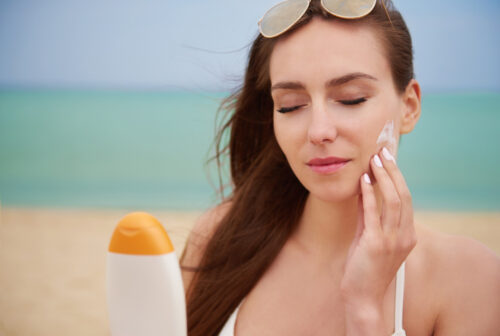



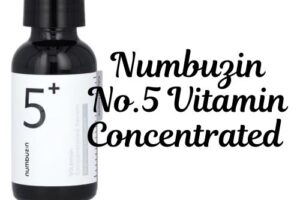
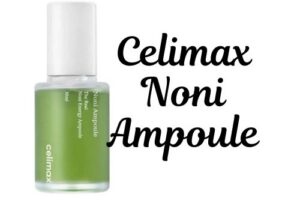
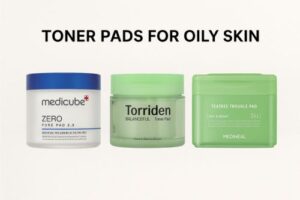

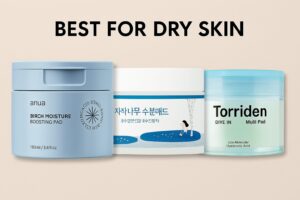
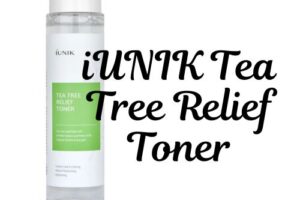
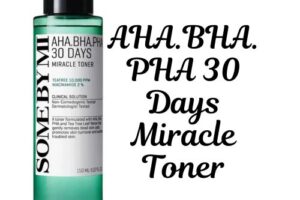
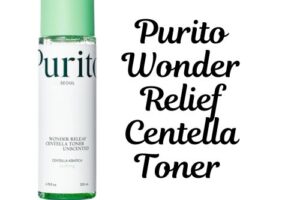
Post Comment